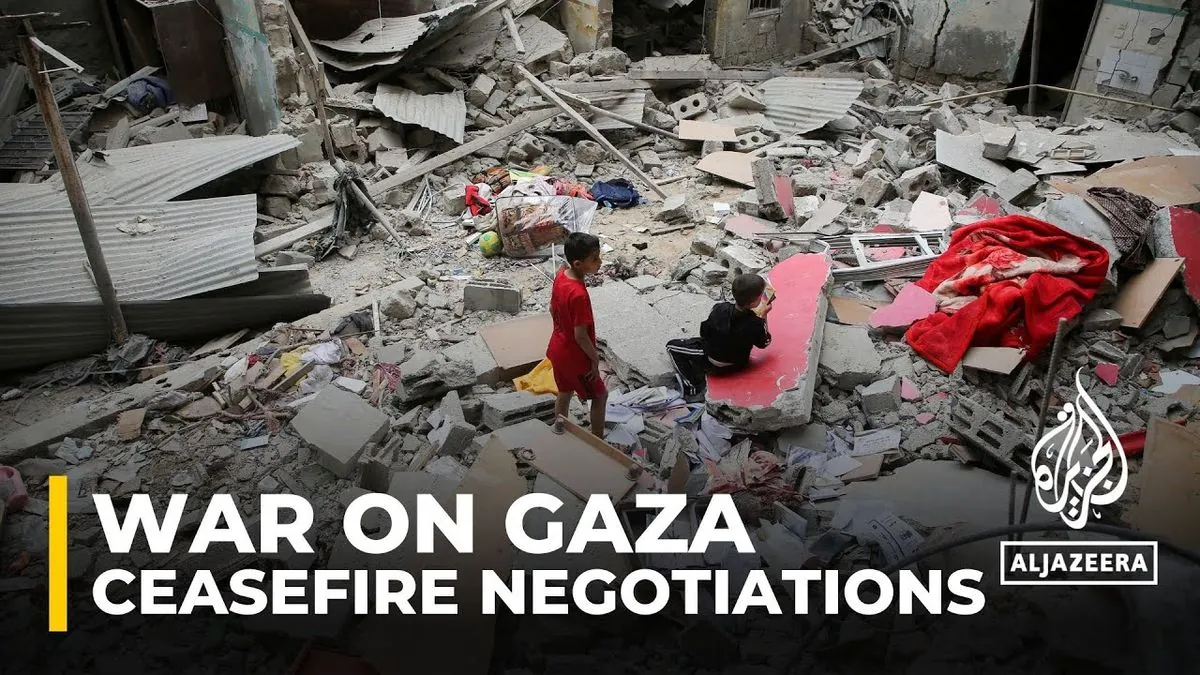White House Races to Draft New Gaza Ceasefire Plan Amid Ongoing Obstacles
U.S. officials are urgently working on a revised Gaza ceasefire proposal, addressing key sticking points. The plan aims to overcome obstacles in negotiations between Israel and Hamas, with a potential draft expected soon.

In a renewed effort to broker peace, U.S. officials are swiftly crafting a fresh proposal for a Gaza ceasefire and hostage release. This initiative comes nearly 11 months after the conflict's outbreak on October 7, 2023, which has since resulted in significant casualties and widespread destruction.
William Burns, CIA Director, is spearheading a small team of senior U.S. officials, including Brett McGurk, White House coordinator for the Middle East, and Secretary of State Antony Blinken. Their goal is to address two primary obstacles: Israel's insistence on maintaining a military presence in the Philadelphi Corridor and the specifics of a hostage-prisoner exchange.
The Philadelphi Corridor, a narrow strip along the Gaza-Egypt border, has become a focal point of contention. Israel's Benjamin Netanyahu has firmly rejected withdrawing from this area in the initial phase of any agreement, citing security concerns. This stance has met resistance from Egypt, Hamas, and several Arab nations, including Saudi Arabia.

The proposed ceasefire plan is structured in phases, with the first 42-day period requiring Israel to withdraw from densely populated areas of Gaza. However, the classification of the Philadelphi Corridor as a densely populated area remains disputed.
Izzat Al Risheq, a senior Hamas official, stated the group's willingness to consider a proposal that meets their demands. Meanwhile, Hamas has accused Netanyahu of attempting to derail negotiations.
"There is no need for new proposals. Netanyahu is seeking to thwart a deal."
The ongoing conflict has had devastating consequences. According to Israeli tallies, Hamas' initial attack resulted in 1,200 deaths and approximately 250 hostages. In response, Israel's military operations in Gaza have reportedly led to nearly 41,000 Palestinian casualties and displaced most of the territory's 2.3 million residents.
The Gaza Strip, under blockade since 2007, faces severe humanitarian challenges. With a population density of about 5,500 people per square kilometer, the impact of the conflict on civilians has been profound. The Rafah Border Crossing, the only entry-exit point not directly controlled by Israel, has seen reduced operations, further complicating aid efforts.
As negotiations continue, the urgency for a resolution is palpable. U.S. officials emphasize that time is running out, with one stating, "The feeling is the time is up." The international community watches closely as mediators work tirelessly to bridge the gap between the conflicting parties and bring an end to this protracted crisis.


































